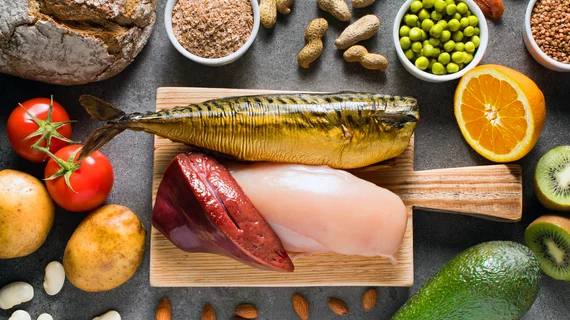Too much niacin? Excess vitamin B3 may increase risk of heart attack, stroke
Nutritionists view niacin, also known as vitamin B3, as a fundamental part of any diet. In fact, some cardiologists may prescribe high-dose niacin to patients due to its cholesterol-lowering properties.
However, according to a new analysis in Nature Medicine, too much niacin can lead to inflammation in the arteries, increasing a person’s risk of experiencing a myocardial infarction or stroke.[1]
The study’s authors, including several researchers from Cleveland Clinic, evaluated blood plasma from more than 1,100 adult heart patients presenting in stable condition. Approximately 64% of the patients were men. Two different molecules naturally produced by the body when it breaks down excess niacin—N1-methyl-2-pyridone-5-carboxamide (2PY) and N1-methyl-4-pyridone-3-carboxamide (4PY)—were associated with a heightened risk of major adverse cardiovascular events. The group then injected mice with 4PY, but not 2PY, and found that it increased the presence of vascular cell adhesion molecule-1 (VCAM-1), a molecule already associated with the formation of plaque.
Taken together, the group’s findings related to 2PY, 4PY and VCAM-1 all suggested that breaking down excess niacin could be bad for person’s arteries, causing plaques to develop that increase the risk of cardiovascular disease.
“Niacin’s effects have always been somewhat of a paradox,” senior author Stanley Hazen, MD, PhD, a preventive cardiologist with Cleveland Clinic, said in a statement from the National Institutes of Health. “Despite niacin lowering cholesterol, the clinical benefits have always been less than anticipated based on the degree of low-density lipoprotein (LDL) cholesterol reduction. This led to the idea that excess niacin caused unclear adverse effects that partially counteracted the benefits of LDL lowering. We believe our findings help explain this paradox.”
Click here for the full analysis.
It is generally recommended that adults consume 14-18 mg of niacin per day. To read more about niacin—which, again, is a key part of any healthy diet unless taken in excess—read this helpful overview from Mayo Clinic.

